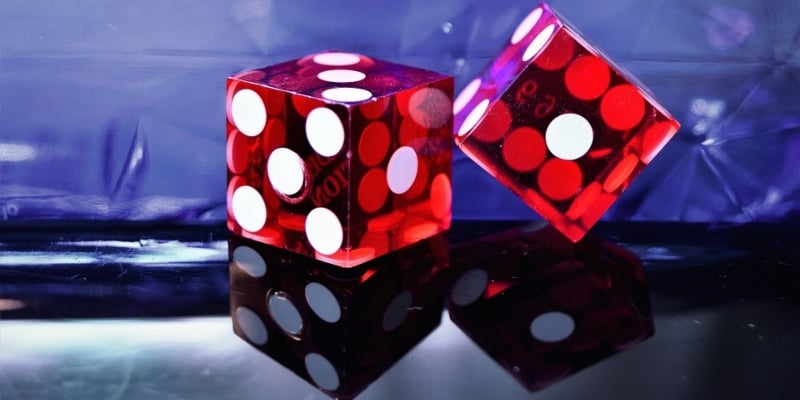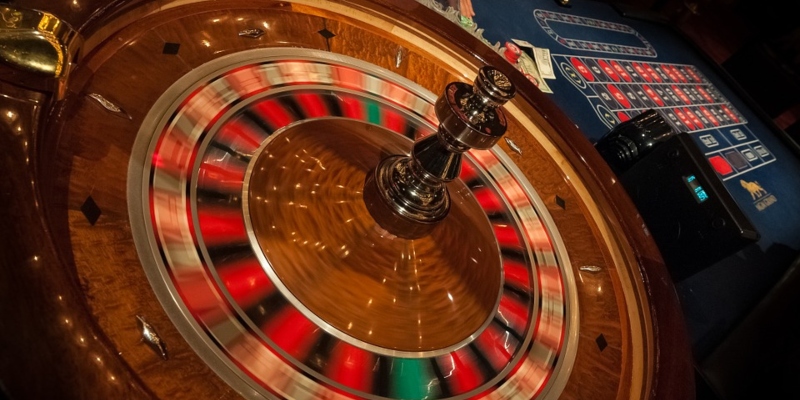Online Casino Games and the Random Number Generator

A random number generator (RNG) is a stand-alone device that can create a stream of numbers or symbols that could not otherwise be predicted other than by any other random chance method. The term random number generator can actually be applied to two different kinds of device: a true hardware random-number generator (HRNG) which is actually capable of creating genuinely random number sequences; or a pseudo-random number generators (PRNG) which, although it creates number sequences which appear to be entirely random, are in fact pre-determined. Although it would be theoretically possible to replicate the process with a PRNG, for any practical casino games purposes, this could never be done fast enough to influence game outcomes thanks to the lightening speed at which this digitally-driven process takes place.
Hardware Random Number Generator
In terms of computer functionality, a hardware random number generator is a device that creates random numbers via a physical process. For example, utilizing microscopic phenomena known to emit low-level, statistically random "noise" signals: e.g. thermal noise, or the quantum behaviour of light using a beam splitter to create the photoelectric effect. Such random events are completely unpredictable, at least in theory. In practice, a hardware random number generator converts some aspect of the random "noise" signals into an electrical signal. These signals are then amplified to a measurable level before introducing some kind of analogue-to-digital converter which then outputs the signals as a stream of random digital numbers. One important use of this kind of HRNG is for the encryption of digital data transmitted via the Internet.
It is interesting to note that other purely physical processes e.g. rolling dice, flipping coins, operating bingo machines and spinning roulette wheels, can also produce their own sequences of unpredictable results. These events tend to be randomly influenced by the sensitive micro details of their use. And because such features combine and interact, they can never be accurately guessed in advance.
Because HRNGs usually output only a few random sequences per second, they are often used to create randomized source material which is then fed into a secure pseudo-random number generator which can output further number streams at much higher volumes.
Pseudo-random Number Generator
A pseudo-random number generator is a computer algorithm used to create a number stream that has all the appearances of being an entirely random sequence of numbers. But strictly speaking, any PRNG-generated number stream cannot be considered truly random. This is because its evolution is the result of some initial predetermined source value. But the true practical advantage of PRNG number streams is the speed with which they can be generated and endlessly reproduced.
Creating any PRNG sequence which can be used with confidence requires a very careful mathematical analysis to arrive at a number stream that is sufficiently near-random. Any well-designed PRNG must be able to produce an output that any hacker could neither calculate nor guess. Nor should it be possible for a hacker in Canada to guess or calculate any of the numbers which preceded those output sequences. Such data outputs are used in casino and gaming applications, to progress electronic games, and for encryption purposes.

The RNG Certificate of Compliance
Any properly licensed and regulated casino enterprise in Canada must use only software which has been thoroughly tested by an independent third-party regulator. These third-party companies, such as the UK’s eCOGRA (eCommerce Online Gaming Regulation and Assurance), provide both land-based and online casinos as well as other gambling businesses with testing and consultancy services. This can include tasks such as RNG evaluations, ongoing RNG or game-payout verifications, poker system audits, the reporting of live dealer, sports-book or betting exchange evaluations, and also fully comprehensive security audits. Casino RNGs which pass a stringent evaluation receive a certificate of compliance which states that their casino games or other gaming methods are certified fair, and thus entirely random.
These checks by a neutral authority ensure, for example, that no card games such as poker or blackjack are ever influenced by variable features like the number of credits in play, the amount of the potential jackpot payout, and similar gaming considerations. Such assessments also verify that all machines (and online virtual machines) observe the minimum payout percentages set by the regional authorities and relevant gaming commissions.
Adjustments to individual machines cannot take place without following an exhaustive process. So if a Las Vegas casino wanted to make changes to any casino game, they would first of all be required to notify the State of Nevada. Furthermore, they would have to use state-approved chips and create a securely documented paper trail. In addition, they would also have to allow random checks by independent inspectors to ensure each machine involved remained fair and compliant.
Can I cheat RNGs?
It has to be admitted there is a very small, theoretical possibility that humans could intervene to cheat an RNG. However, in practice, only a handful of people have the knowledge to do so. More importantly, the use of regular independent third-party testing means the risk of detection is extremely high – so from a commercial perspective, any company found cheating would instantly lose every shred of industry and popular credibility. So no casino labelled dishonest could ever hope to make a profit.
RNG and online slots
Regardless of what many players seem to believe, no slot machine is able to recognize and reward a diligent gambler. Neither will slots be able to sense whether you have been playing for two hours or ten seconds. That means each game spin will be entirely independent and totally unrelated to the previous one.
RNG and online roulette
Using PRNGs in online roulette is easy because the game requires only one number per spin. So online games of roulette use a PRNG to determine the number pocket where the ball will stop. For online casino operators, this means that players cannot create a roulette strategy that is guaranteed to win. Thus the presence of an RNG reassures all players that their favourite game is entirely fair and luck alone will decide the outcome of every round.

